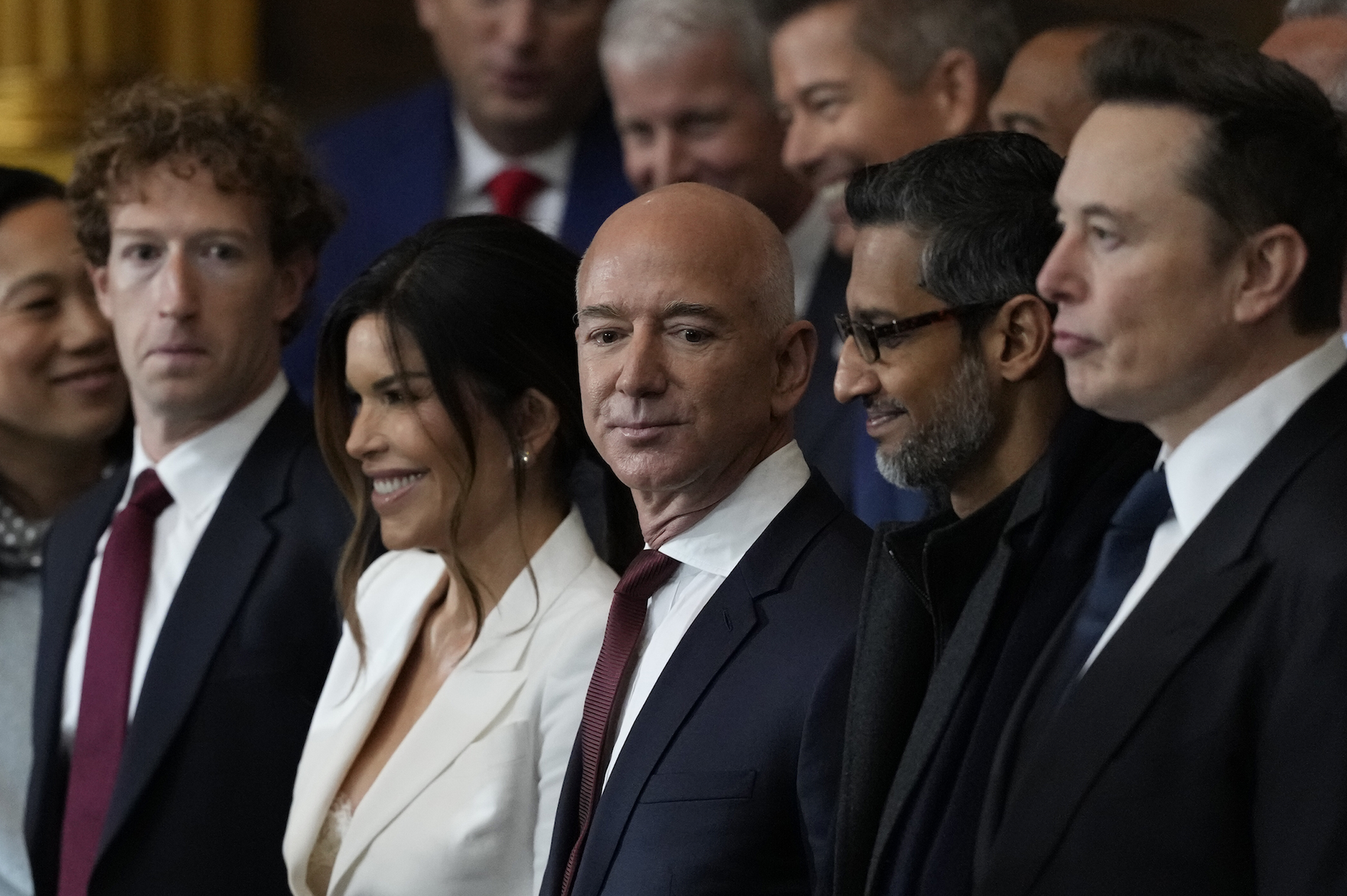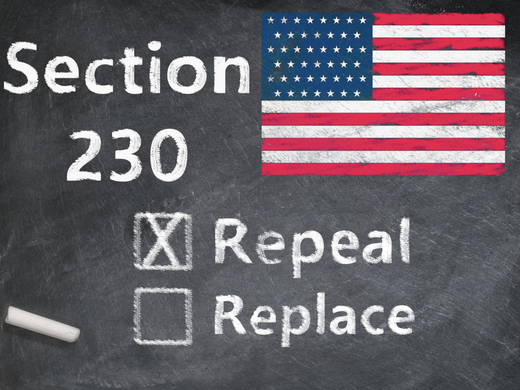Much political and media attention has focused on US President Donald Trump’s threats to impose tariffs on Canadian goods. But Canada should also be concerned about the US president’s plans for big tech.
Detailed plans for the second Trump administration were set out in Project 2025, the controversial transition plan that Trump denied knowing about during the campaign but has since embraced. Brendan Carr, the senior Republican in the Federal Communications Commission (FCC) and Trump’s pick to run the FCC, wrote Project 2025’s chapter on that agency. One of Carr’s stated priorities is to “rein in big tech.” One way Carr proposes to do this is by dismantling what he terms the “censorship cartel,” a task befitting Carr, whom Trump has referred to as his “warrior for Free Speech.”
As set out in Project 2025, Carr wants “reforms that prohibit discrimination against core political viewpoints.” Here, he is referring to the long-standing but much-discredited claim from Republican politicians and pundits that conservative viewpoints are disproportionately censored online, especially on large social media platforms.
Researchers at New York University debunked these claims in a 2021 report that found, in reality, “conservatives enjoy a prominent place on major social media platforms.” Conservatives have also created niche social media platforms that privilege right-leaning and far-right viewpoints, such as Gab, Parler, Truth Social and the Toronto-based Rumble.
We can speculate at this point about what these reforms might entail. Legal analysts point out that such reforms would involve the FCC working with Congress to reform section 230, the US law that protects internet platforms from liability for their users’ posts, to limit the immunity that companies currently enjoy. However, I argue that we should not rely upon a second Trump administration to work within established political process or respect political norms. For example, Trump recently threatened to revoke the licences of US broadcasters that fact-checked him, showing a blatant disregard for media independence and broadcasting rules.
More importantly, my research demonstrates that governments don’t need legislation or formal mechanisms to make companies comply with their demands. I show in my book, Chokepoints, that the US government under President Barack Obama both cajoled and pressured tech companies with threats of legislation or criminal charges to adopt non-legally binding rules to counter the online trade in counterfeit goods. Facing this pressure and wanting to avoid legislation, tech companies agreed.
It would not be surprising if Trump, who routinely issues threats, were to follow the path of what’s termed “shadow regulation.” But he may not need to, as many major US tech company leaders have enthusiastically embraced his second administration, notably Elon Musk, who is positioned to play a key role in crafting the administration’s tech policy.
What might a dismantled “censorship cartel” in the United States mean for Canada’s digital ecosystem?
X (formerly Twitter) provides a glimpse. Since Musk’s acquisition of X in 2022, he has not only eliminated much of the platform’s content moderation systems, causing complaints of hate speech to soar, but also threatened to sue researchers for documenting the rise of hate speech. Similarly, new content moderation rules announced by Meta’s CEO Mark Zuckerberg on January 7 align with the goal of dismantling perceived platform “censorship.” In a major policy reversal, Zuckerberg killed Meta’s third-party fact-checking policies, which will increase disinformation on its platforms. He also scrapped rules that prohibited hate against protected categories of people such as LGBTQ+ communities, which will cause a significant rise in hate speech on Meta, as happened with X. These moves demonstrate Meta’s support for modifying its content moderation practices in ways that align with Project 2025.
With Musk and Zuckerberg aligning themselves with Trump, it will be more difficult for Canada to undertake content moderation that differs from US policies favouring free speech — more precisely, Project 2025’s vision of free conservative speech.
This spells trouble for Canada’s Online Harms Act, which the government recently split into two bills: one to fast-track the protection of children and the regulation of revenge porn; the other to capture the more controversial elements that deal with amendments to existing laws relating to inciting violence, terrorism or engaging in hate speech. The second bill, its provisions already criticized by Canadian civil liberties groups for endangering freedom of expression, will face renewed opposition from US social media companies emboldened by the Trump administration’s “war on censorship.”
The Trump administration’s tech policies will also affect Canada in other ways. On December 10, Trump announced that Andrew Ferguson will lead the Federal Trade Commission (FTC). Ferguson published his priorities in a one-page document he pitched to the Trump team when campaigning for the job. These priorities, among others, involve ending the FTC’s role in regulating artificial intelligence (AI), focusing antitrust enforcement against big tech companies engaged in unlawful censorship, and terminating investigations of “so-called ‘disinformation,’ ‘hate speech’ or AI ‘bias.’”
A priority for the next Trump administration appears to be free rein for the development of AI and cryptocurrencies, along with the removal of most regulation. This will be a boon to big tech as it struggles to make AI profitable, but poses a challenge to those countries, including Canada, seeking to impose guardrails on the technology, especially in relation to bias, or to regulate cryptocurrencies.
Trump’s picks for the FCC and the FTC have the potential to fundamentally reshape existing tech policies, and Canadian policy makers should be prepared to respond.



